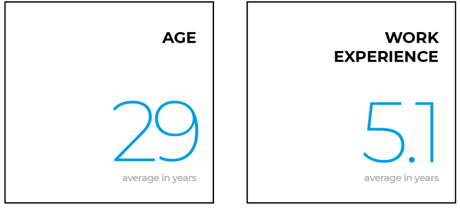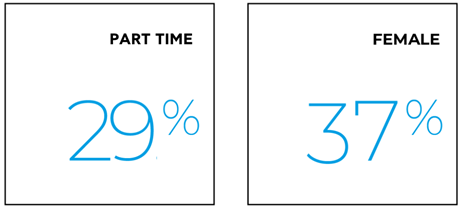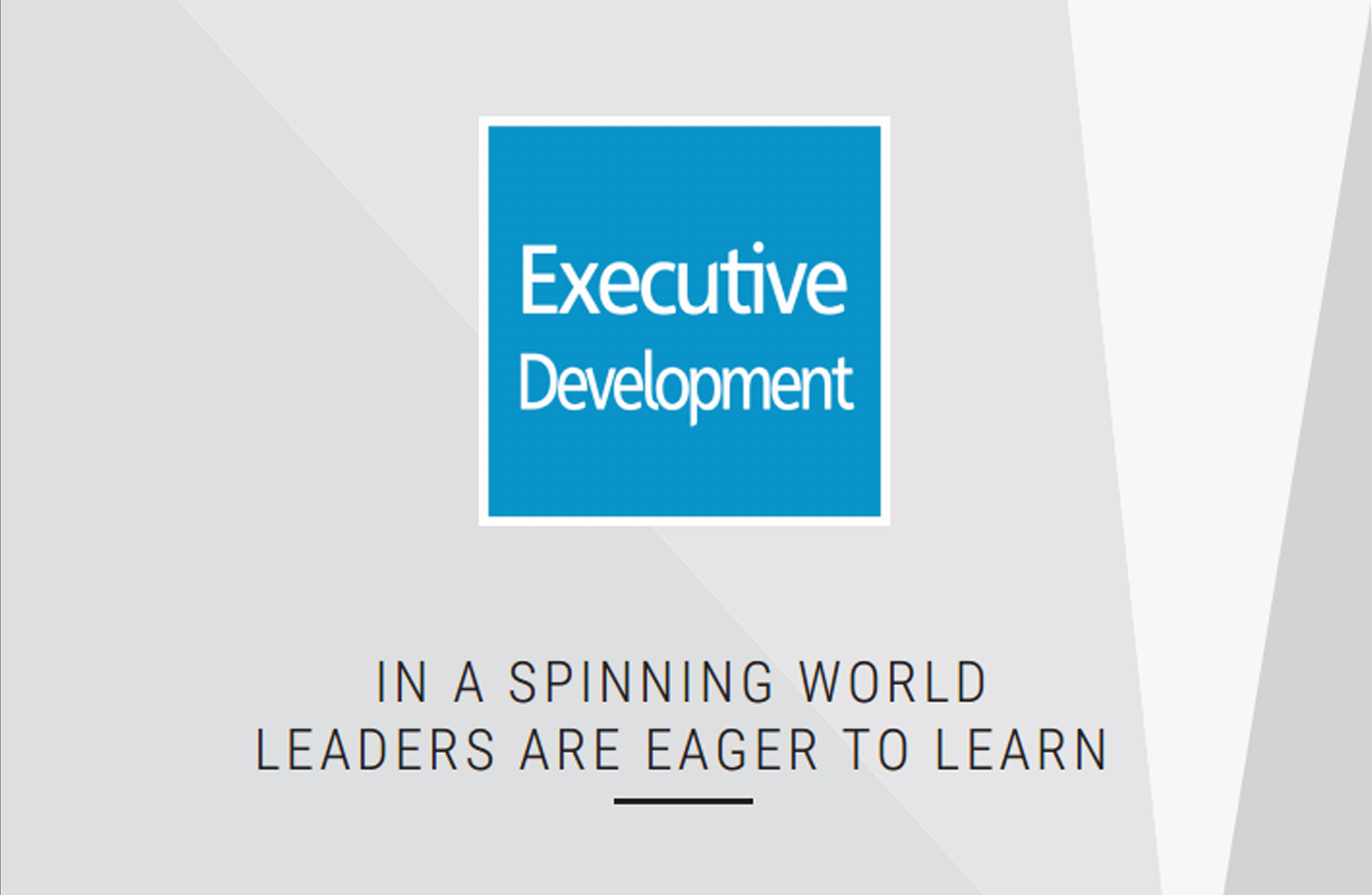MSc in Finance
INVEST IN YOURSELFOVERVIEW
This program presents a premier academic qualification for those interested in an international career in finance in Greece and abroad. While the modern corporate world experiences cataclysmic changes and disruptions in the way that capital markets operate, our MSc in Finance program prepares aspiring and seasoned finance professionals for a successful career in the areas of banking, corporate finance, investment management, risk management and treasury management.
We offer three specialization streams, namely: 1. Investments 2. Corporate Finance 3. Fintech and Risk Management
The innovative design of the program and its market led curriculum equips students with relevant, up to date, skills and knowledge while offers a flexible program of study that enables students to choose from a variety of courses and adjust the duration of their studies according their own needs. The program is both affiliated by CFA and PRMIA, accredited by EPAS and NECHE and regularly reviewed by both academic and practitioner committees to strike an optimum balance between theory and practice. These committees review the curriculum and the delivery methods while ensure that the program offers sufficient practical applications of the knowledge that make sense in today’s world of business. As a result of the above efforts we manage to maintain exceptionally high placement rates, reaching up to 90% in a 6-month period after graduation.
Key features of the program
- Weekday classes between 18:00 – 22:00, twice or three times per week on average
- A 12-month program (24-month part-time)
- Field trip to foreign universities and financial instructions abroad
- Interaction with international students and participation in international student exchange programs
- 8 core modules and 2 workshops
- 3 specialization streams: Investments, Corporate Finance, Fintech & Risk Management
- Assessment: group reports/presentations, case study analysis, interim tests, final exams
- Access to the state of art, Simulating Trading Room of the American College of Greece at Aghia Paraskevi Campus
- Scholarships for the CFA Exams
The MSc in Finance Is Designed for:
-
University graduates, with diverse educational backgrounds and work experience, wishing to launch a career in finance.
-
Professionals who hold finance- related positions and want to enhance their professional status.
You may find here more information about the Program's Intended Learning Outcomes
Class Profile


HIGHLIGHTS
International Recognition: Accredited by The New England Commission of Higher Education (NECHE) and EFMD accredited.
Combination of academic rigor, relevant industry knowledge and technical skill development to address participants’ professional needs and aspirations through three specialization streams, namely (1) Investments, (2) Corporate Finance, and (3) Fintech & Risk Management.
Broad and deep understanding of finance in global context and a firm grasp of the latest financial theories and techniques.
Emphasis on the practical applications of finance theories in solving actual problems.
Regular review and continuous quality assessment of the program conducted by academic and practitioners steering committees.
Develops analytical skills required for a successful career in Finance: The program culminates with the capstone course (depending on the selected stream, either “Equity Valuation” or “Credit Risk Modeling and Data Analytics”)
Use of ACG's Simulated Trading Room that provides a real sense of technological sophistication, bringing financial markets to the students’ fingertips through cutting-edge software along with the appropriate hardware.
Exceptionally high rates of employment after graduation.
CFA University Affiliation Program:
Alba has been welcomed in the CFA Institute University Affiliation Program. Our MSc in Finance has been acknowledged as incorporating at least 70 percent of the CFA Program Candidate Body of Knowledge (CBOK) and placing emphasis on the CFA Institute Code of Ethics and Standards of Practice within the program. This program positions students well to obtain the Chartered Financial Analyst® designation, which has become the most respected and recognized investment credential in the world.
Entry into the CFA Institute University Affiliation Program signals to potential students, employers, and the marketplace that ALBA’s curriculum is closely tied to professional practice and is well-suited to preparing students to sit for the CFA examinations. Through participation in this program, ALBA is eligible to receive a limited number of student scholarships for the CFA Program each year.

Alba is PRMIA University Partner
The Professional Risk Managers' International Association (PRMIA is a global, non-profit association of risk professionals with 90,000 members worldwide and presence in 65 major cities. Through university partnerships, PRMIA seeks to set the international standards for graduate level education in risk management. Recognition of ALBA Graduate Business School as a PRMIA University Partner provides a signal to students and recruiters that the MSc in Risk program's curriculum is closely tied to professional practice and is well suited to preparing students to sit for the PRM exams.
Benefits to our MSc in Finance students: Our MSc in Finance students will be offered access to the local risk community and networking opportunities through local PRMIA chapters. Students can also benefit from a 25% discount on PRMIA membership and have extra 20% discount on PRM and associate PRM products. PRM exam study material is available to our library for all students.

Pathway collaboration with MIT on the MITx MicroMasters program in Finance
We are the only educational institution in Greece that has a pathway collaboration with MIT on the MITx MicroMasters program in Finance. Based on this collaboration, the holders of this particular MITx MicroMasters credential could apply for admission at the Alba MSc in Finance and, upon acceptance, will be awarded up to 25% of the academic units in the MSc coursework.

CURRICULUM
MSc in Finance Program Total Year Schedule 2024-2025
US Credits: 30
1st and 2nd period: Common core courses
3rd, 4th and 5th period: Stream-dedicated courses plus selection of one elective from another stream. Moreover, the students will choose either a thesis or an internship.
You may find the Graduate Academic Calendar 2024–25 here.
*The school reserves the right to reexamine the structure of all academic programs and proceed to any necessary changes in the total year schedule.
**Students who have passed all three levels of CFA program exams are eligible for receiving exemptions in the following core courses of the Alba MSc in Finance program: (1) Corporate Finance & Valuation (2) Portfolio Management and Investments.
1st Period | September – October
Quantitative Tools in Finance
2
Financial Accounting & Reporting
2
Financial Data Analysis with Python
1
Business Writing
0.5
Presentation Skills Workshop
0.5
2nd Period | November – December
Corporate Finance & Valuation
2
Portfolio Management
2
Economic Policy & Capital Markets
1.5
3rd Period | January – February
Fixed Income Securities | Investments Stream
2
Corporate Treasury Management | Corporate Finance Stream
2
Financial Risk Management | Fintech & Risk Management Stream
2
Business Ethics and Corporate Social Responsibility
1
Period of Electives Courses (The equivalent of 1 full course)
4th Period | March - April
Advanced Asset Pricing | Investments Stream
2
Advanced Corporate Finance | Corporate Finance Stream
2
Finance Digitalization | FinTech & Risk Management Stream
2
Period of Electives Courses (The equivalent of 1 full course)
2
5th Period |Investments Stream | May - June
Equity Valuation
4
Alternative Investments & Sustainable Finance
1.5
Master Thesis
4
Internship
4
5th Period |Corporate Finance Stream | May - June
Equity Valuation
4
Alternative Investments & Sustainable Finance
1.5
Financial Econometrics
1.5
Master Thesis
4
Internship
4
5th Period |Fintech & Risk Management Stream | May - June
Credit Risk Modeling and Data Analytics
4
Financial Econometrics
1.5
Master Thesis
4
Internship
4
FACULTY

Dr. Tzioumis is an Associate Professor of Finance at the Alba Graduate Business School. Prior to joining Alba in 2018, he was a Bank Examiner at the Office of the Comptroller of the Currency (OCC), an independent bureau of the U.S. Department of the Treasury. Dr. Tzioumis has also worked at the World Bank and the London School of Economics.
alba profile linkCAREER
After completing the Program participants should be able to:
- Comprehend qualitatively and quantitatively the core areas of finance;
- Understand current trends and practices in the financial industry;
- Understand and critically evaluate the practical applications of financial theories and techniques and how they are used in the financial industry;
- Apply the techniques and methods of finance to conduct independent research projects;
- Display strong analytical and communication skills;
- Appreciate the importance of business ethics and corporate social responsibility;
- Make use of the latest technology to design and perform new applications in corporate finance, risk management and investment/ retail banking.
SCHOLARSHIPS
You can secure pre-approval of your scholarship, before you apply for admission to the MBA or MSc program of your choice.
GMAT Scholarships
Scholarships of 40% for MBAs and MSc programs for GMAT ≥ 645
Accenture Scholarships – Marios Limnios
Three partial scholarships for MSc in International Business and Management & MSc in Finance program
Next Generation Family Business Scholarship
One (1) merit-based partial awarded to a member of the next generation of a family business for several MBA & MSc programs
Leventis Foundation Scholarships
Full and partial scholarships for Nigerian nationals for the Alba MBA & MSc in Finance
SEV (Hellenic Federation of Enterprises) Scholarships
Partial scholarships of 50% to Small and Medium Enterprises – members of SEV, offered as rewarding services to the members of the Federation.
The Chris Argyris Scholarship
Two (2) partial scholarships amounting to 50% of total tuition fees for various MSc Programs, based on a combination of academic performance & potential.
Triton Scholarship
Two partial scholarships of 50% for MSc in Finance program
Ulysses Kyriakopoulos Expendable Scholarship
Partial scholarships, based on a combination of academic/professional excellence, high academic & professional potentials and presence of financial need.
Y. Pastra Scholarship for the MSc in Finance
Partial scholarship of 50% to be awarded to a candidate of the MSc in Finance with excellent academic performance & potential and presence of financial need.
Women Empowerment and Equality partial Scholarship
Women on Top offers one partial merit- based scholarship.
ADMISSION REQUIREMENTS
To be considered for admission, candidates must:
- Hold a bachelor’s degree or be a Chartered Financial Analyst (CFA chart holder), or have passed all three levels of CFA exams;
- Provide evidence of excellent command of the English language;
- Need to be currently employed or self-employed (valid for the part time mode only);
- GMAT tests are optional unless the Academic Committee requires the applicant to take them: in any case, scores of 515 or more (GRE >155) can strengthen your application and help you secure a scholarship.
Candidates must submit:
- The completed application form, including one recent photograph in jpeg format;
- Two letters of recommendation in Greek or in English language;
- Official Academic Transcripts as well as Certified copies of degrees from each undergraduate, graduate or professional degree earned;
- Proof of competence in the English language (unless schooled in English): Proficiency (Cambridge Proficiency, Michigan Proficiency, MSU Proficiency), or TOEFL, or IELTS, or Duolingo English Test;
- Three Essays, as indicated in the Application form;
- Receipt of the non-refundable application fee's [€60] deposit.
Click here to download the details for admission.
For details on academic policy, course credit policy, fee policy, and rules for student conduct, please refer to the Student Handbook .
Additionally, the School's Students Code of Conduct can be found here.
REQUEST A BROCHURE
Fill in this form for a copy of the brochure
CONTACT

We urge applicants to request further information or to come for a meeting at our downtown campus, in order to better understand their profile and motivations.
Just fill out and submit the form below and we will respond to you as quickly as possible.
Tel.: +30 210 89.64.531 ext. 2289
e-mail: [email protected]













